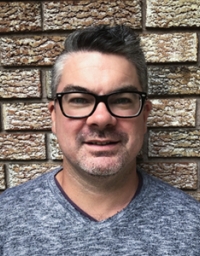Dr. Justin Carré

Areas of Specialization:
Social neuroendocrinologySocial perception
Research Interests:
I am a social psychologist who studies neuroendocrine mechanisms underlying variability in human competitive and aggressive behaviour. Some of our recent work indicates that testosterone concentrations rise in response to winning a video game competition (Xbox Kinect) and decrease in response to losing (Carré et al., 2013). Furthermore, such hormonal responses to competition predict future competitive (Carré & McCormick, 2008) and aggressive behaviour (Carré et al., 2009; 2010; Geniole et al., 2011; Carré et al., 2013). Another line of work examines associations between facial structure and social behaviour. This work indicates that variability in the face’s width to height ratio predicts aggressive behaviour (Carré & McCormick, 2008). Moreover, this effect is particularly strong among men with relatively low social status (Goetz et al., in press). Also, people can accurately estimate another’s propensity for aggressive behaviour based on emotionally neutral facial cues (Carré et al., 2009; 2010).
My lab takes a social neuroscience approach to research by combining theory and methodology from social and experimental psychology, endocrinology, neuroscience, social cognition, and pharmacology.
Selected publications (seecarrelab.nipissingu.ca/publications for a full list)
*denotes undergraduate students and # denotes graduate students
Goetz SMM#, Shattuck KS#, Miller RM*, Campbell JA*, Lozoya E*, Weisfeld GE & Carré JM (in press). Social status moderates the relationship between facial structure and aggression. Psychological Science.
Carré JM, Campbell JA*, Lozoya E*, Goetz SMM#, & Welker KM# (in press). Changes in testosterone mediate the effect of winning on subsequent aggression. Psychoneuroendocrinology
Carré JM, Hyde LW, Neumann CS, Viding E & Hariri AR (2013). The neural signatures of distinct psychopathic traits. Social Neuroscience 8, 122-135 IF = 2.74
Carré JM, Murphy KR* & Hariri AR (2013). What lies beneath the face of aggression. Social Cognitive and Affective Neuroscience. 8, 224-229.
Carré JM, McCormick CM & Hariri AR (2011). The social neuroendocrinology of human aggression. Psychoneuroendocrinology, 36, 935-944.
Carré JM, Gilchrist JD*, Morrissey MD* & McCormick CM (2010). Motivational and situational factors and the relationship between testosterone dynamics and human aggression during competition. Biological Psychology, 84, 346-353.
Carré JM & Putnam SK (2010). Watching a previous victory produces a surge in testosterone among elite hockey players. Psychoneuroendocrinology, 35, 475-479.
Carré JM, McCormick CM & Mondloch CJ (2009). Face structure is reliable cue of aggressive behavior. Psychological Science, 10, 1194-1198
Carré JM, Putnam SK & McCormick CM (2009). Testosterone responses to competition predict future aggressive behaviour at a cost to reward in men. Psychoneuroendocrinology, 34, 561-570.
Carré JM & McCormick CM (2008). In your face: Facial metrics predict aggressive behaviour in the laboratory and in varsity and professional hockey players. Proceedings of the Royal Society of London: Biological Sciences, 275, 2651-2656
